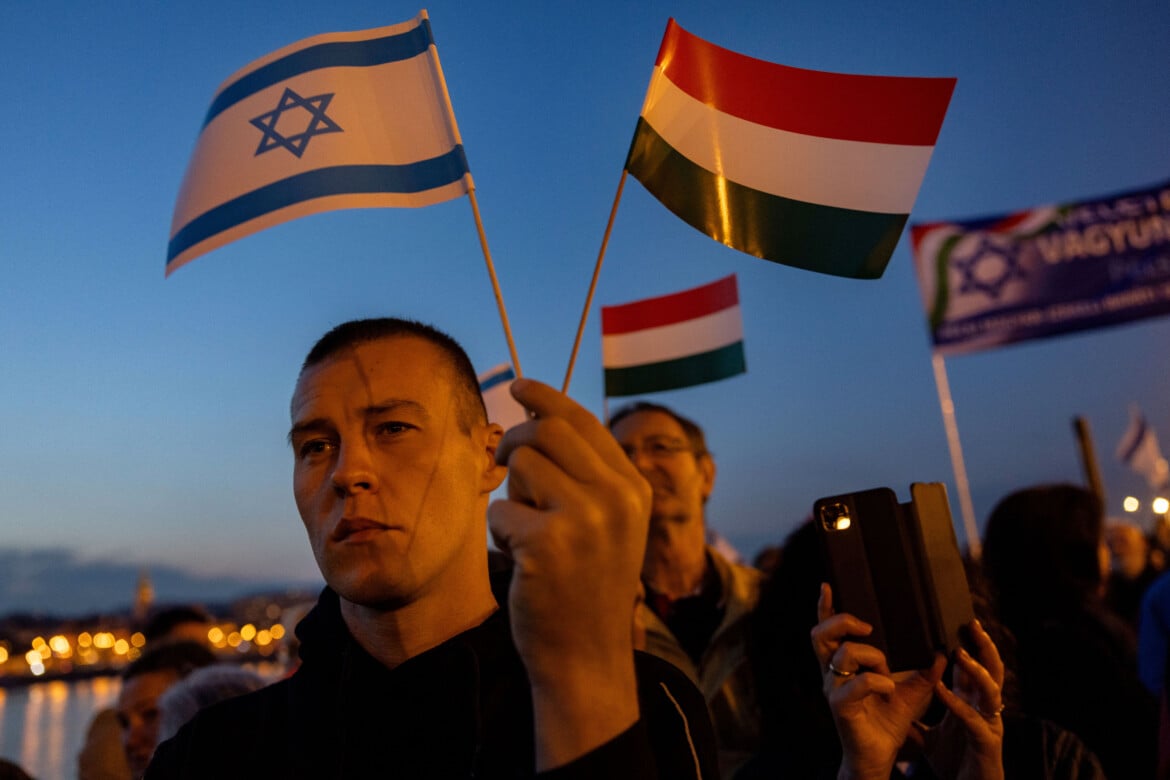Commentary
Netanyahu, a fugitive from the ICC, goes to Budapest
The demonstrative performance in Budapest brings up radical questions. Can law actually put limits to war, avert genocide and crimes against humanity?

Hungarian Prime Minister Orbán will welcome a fugitive from justice to Budapest with full state honors. An International Criminal Court (ICC) arrest warrant for war crimes (starvation, murder, intentional attacks on civilians) and crimes against humanity (extermination, persecution) has been hanging over Israeli PM Netanyahu since May 20 of last year.
It appears that the two will also discuss the deportation of Gaza’s residents – Trump's dream – and Orbán appears comfortable in the role of the child saying out loud that “the emperor has no clothes.” But the “emperor” of international law had long been wearing very little.
All EU states are part of the ICC and have the obligation to carry out its warrants, but after the resumption of the Gaza massacre, Greek Prime Minister Mitsotakis met with Netanyahu, with whom he discussed defense cooperation. Before him, EU High Representative for Foreign Policy Kallas also paid a visit to Jerusalem. And the German government had immediately criticized the ICC decision by invoking the “great responsibility” Germany feels toward Israel for the Holocaust: in other words, since our great-grandparents exterminated Jews, we must turn a blind eye to the slaughter of Palestinians.
As soon as he won the election, Merz, the upcoming Bundeskanzler, declared the arrest warrant absurd and invited Bibi to Germany. Always inscrutable, Italy’s own Tajani, after some vacillating, claimed he had seen “the papers” and that the court's decision was unfounded and “inspired by political principles.” The Foreign Minister of a democratic republic should have a little more substance to offer his fellow citizens, but the truth is that we welcome those wanted by the ICC with open arms or even escort them home on a state flight, as was the case with Almasri. The French are taking it a little more seriously: the government has pointed to Article 98 of the Rome Statute of the ICC, which states that in its requests for assistance and extradition, the Court may not violate any obligations a state has regarding diplomatic immunity or signed treaties. However, Article 27 clearly states that the status of president, prime minister, parliamentarian or diplomat “shall in no case exempt a person from criminal responsibility under this Statute” and that “immunities or special procedural rules which may attach to the official capacity of a person, whether under national or international law, shall not bar the Court from exercising its jurisdiction over such a person.”
Denying this contradicts the basic principle of the ICC, namely criminal responsibility for individuals (Article 25) for aggression, genocide, crimes against humanity and war crimes (Articles 5-8). Indeed, European governments never had the slightest intention of challenging the arrest warrant for Putin.
Jurist Hans Kelsen considered this principle to be of fundamental importance for “peace through law” to be made a reality. The first attempts to apply it after World War II, at the Nuremberg and Tokyo tribunals, were disquieting, and in many respects the international tribunals set up after the end of the Cold War also replicated the “victors' justice” approach denounced by Danilo Zolo. The ICC, on the other hand, respects the principles of nonpartisanship and nonretroactivity (Articles 22-24). Its great limitation, in addition to its relative subordination to the UN Security Council (Article 16), is the membership status of countries. Strongly desired by President Bill Clinton in the era of triumphant globalization and liberal international order, the Rome Statute has never been ratified by the US. There are 125 state parties, but they do not include economic, military and demographic powers such as China, India, Indonesia, Pakistan, Russia. Or Israel. This is also why membership in the ICC seemed to be a hallmark of European identity. At least as long as its activities were aimed at figures from smaller states or defeated groups.
Until recently, none of those convicted or indicted by the ICC was white.
When the court began to get serious, indicting the leader of a key ally of the West, a privileged partner of the EU, that’s when it suddenly became a scandal. As if international law could function only on the basis of double standards, applying only among civilized peoples (as its founding fathers thought) while beyond Europe was the realm of the “free and ruthless use of violence.”
The demonstrative performance in Budapest brings up radical questions. Can law actually put limits to war, avert genocide and crimes against humanity? And furthermore: is Europe still a power on account of civilization, or on account of rearmament? It is up to the responsibility of governments and, above all, to the mobilization of peoples that the answer isn’t lost in the wind.
Originally published at https://ilmanifesto.it/netanyhau-a-budapest-la-chiamata-e-per-leuropa on 2025-04-01
